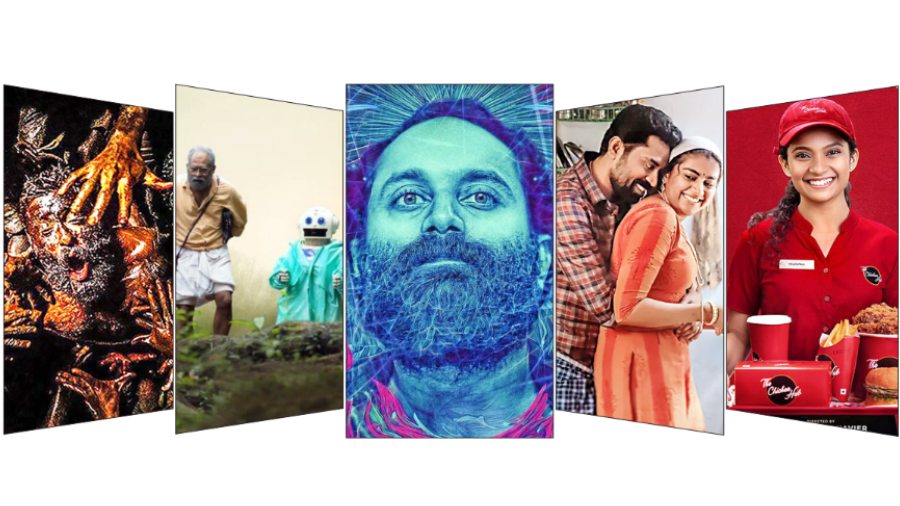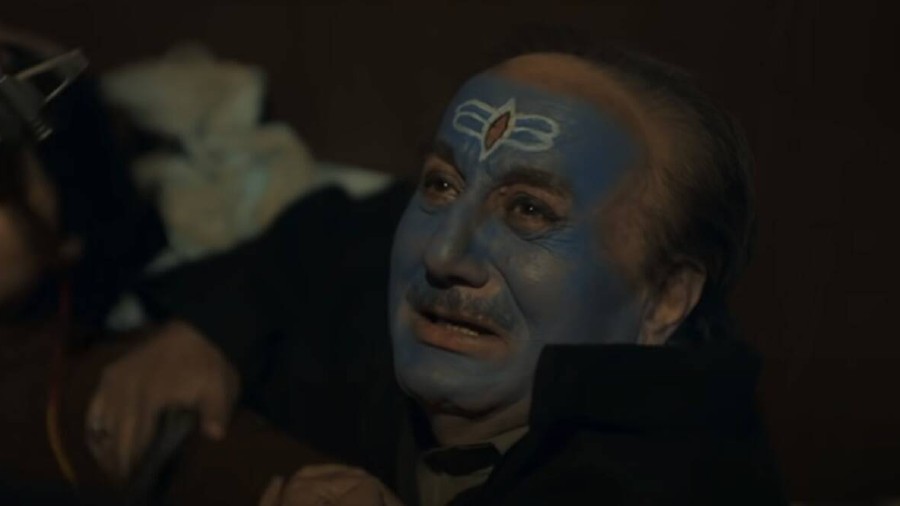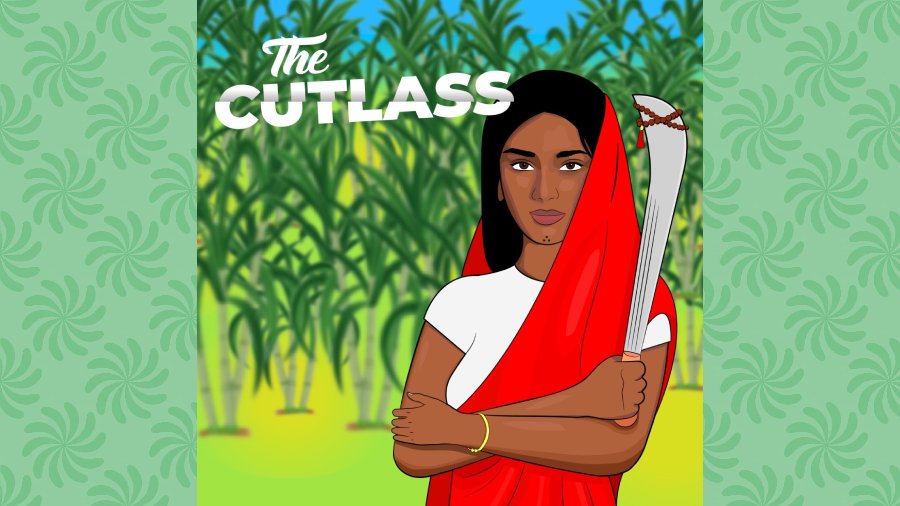I cannot remember anymore the sequence of events that led to the discovery, but I can tell you when. When the pandemic was in full swing, when the second oxygen cylinder had just left the house, when life sputtered through different degrees of lockdown, that was when I discovered Malayalam films.
At the beginning, with ignorance typical of many of my community about Dravidian languages, I wasn’t even aware that these were all Malayalam films. They had me at storyline; the intuitive OTT platform did the rest.
Listen to this one. Subramanian is jobless. Entirely his father Bhaskaran’s doing. The elder doesn’t like living by himself in Payyanur, and always finds some excuse to summon his son from wherever he is posted. But when the job offer from Russia comes along, a fed-up Subramanian doesn’t pass it up. He hires a home nurse and takes off. Some months later, Bhaskaran falls ill. The anxious son flies home with… a robot, programs it to be his father’s nurse and companion, and returns to post. Android Kunjappan Version 5.25 is about an outraged old man, his son and his robot son-surrogate.
Bhaskaran’s Payyanur is a municipal town, but Kakkanad in Ernakulam is a major industrial hub, its stories are different. Driving Licence is about a motor vehicle inspector at the Kakkanad RTO, Kuruvila Joseph. Josephetta — etta works like the Bengali babu — is a fan of film star Hareendran. But when the star has to apply for a new licence, a potential bromance goes off-kilter.
Such engrossing stories!
Unda is about a contingent of Idukki police on election duty in Bastar, Chhattisgarh. And Sullu is about some hours in the life of a cantankerous father when his son goes missing — Jithu is actually just next door, accidentally locked in a cupboard during a game of hide and seek.
In nearly all of them, the casting is intelligent, the acting good down to the smallest of roles, and the cinematography fine. But the clear hero is the story.
Who is writing the larger script of Malayalam cinema, I ask Sanjay, one half of the hugely successful scriptwriter brothers Bobby-Sanjay. He replies: “The audience.” He talks about how they are socially and politically aware and allergic to melodrama. “We have to update ourselves because they are more progressive than us,” he adds. So don’t make me say it, just pick your state and take stock of all those films you just made and are making.
The timing of my discovery was crucial. The virus had pulled the plug on the great global carnival — click and shop, swipe and date, wine and dine, travel, travel, travel… Most of us had fallen flat on our faces, closer to reality by many degrees.
The stories of these films cut across realities.
One unfolds from the moment a college student uploads a social media post slamming the CM. Kuruthi is about a Muslim rubber tapper. Kapella is about a Christian girl in Wayanad countryside. Jallikattu takes off when a buffalo belonging to the only butcher in a small village escapes. Trance is about a motivational speaker who is trained to pose as a pastor-cum-miracle worker.
From when has the script of Malayalam cinema been this way? “After 2010,” says Pratap Joseph, who is known as the torchbearer of radical parallel Malayalam cinema but who prefers to identify himself as an independent filmmaker. The game changer, he says, was Traffic (2011), a “non-linear film” written by Bobby-Sanjay. It was inspired by a newspaper report.
There are stories within stories! Njan Prakashan is about a male nurse — Kerala churns out more nurses than any other state — but it has a scene wherein farm labourers are toiling away in the paddy fields of Kerala and singing a Bengali folk song. The confused protagonist asks: “What is this?” His mentor replies: “Now we can hear only their songs on our fields. We forgot farming, and our songs too.” I doubt if this scene would have resonated thus pre-pandemic, when migrant labourers lived in urban India’s blind spot. In the thriller Nizhal, the judge wants an abandoned pond searched for a missing body. He asks a cop, “Do you know a diver?” Noting the cop’s silence, he says, “I shall pay.” The cop lights up and walks away nodding. This is India, and there is a taker for every odd job.
The stories are told with a keen sense of the local, the national and global. The telling is subtle and suffused with empathy and humour. In Jallikattu, when the whole village is running helter-skelter to escape the buffalo on the run, one man is losing his nerve because the missing animal has jeopardised the menu of his daughter’s wedding feast. In Kunjappan (appan is possibly the shona equivalent), we know the old man has been won over when he starts dressing the robot in mundu and shirt, the latter especially stitched to its measurements. In another film, when some men go rogue, they are dealt the ultimate cheeky reprimand — “Enough! This is not UP or Haryana.”
Though Ayyappanum Koshiyum is about the clash between a rich man’s son and a sub-inspector, in all that frenetic mundu-twirling there is evident pride in one’s regional culture. There is also critique of culture, as in The Great Indian Kitchen. An educated young woman enters wedlock only to find her new life tethered to the kitchen. Writer-director Jeo Baby uses kitchen sights, sounds and smell to capture the young woman’s awakening. The first morning’s sizzling dosa on skillet and traditional roll of the grindstone gives way to the broken rhythm of one of the later mornings — rotting garbage and three eggs boiling in a pan shorn of ritual.
C U Soon plays out as a host of chat and search windows on the computer screen. Mahesh Narayanan wrote it. Other names to take note of are Syam Pushkaran, Shahi Kabir, Khalid Rahman. Sachy or K.R. Sachinanandan’s own script ended abruptly in 2020, but his works live on. Sanjay says, “We have brilliant writers who are looking at movies as a whole.” He continues, “Here, as writers, we have a say in the whole process of film-making. Writers have their freedom. Producers and directors encourage writers.”
This year’s great discovery is Jana Gana Mana. Forget the one-too-many backstories, put aside the critique of Prithviraj Sukumaran’s acting, look at that story — big, bold, grotesque. Sharis Mohammed lays bare conditions endemic to our society. A society, where a sitting judge has made up his mind about the guilt of a few dead men based on their history, background and looks. A society, where a minister says unabashedly: “This is politics. We can ban notes. And if required, we will ban votes too.” A society where a university teacher refuses to grant a student her hard-earned PhD ever, sneering, “Go and have a look at yourself in the mirror.”
Yes, I discovered Malayalam films by accident; I continue to watch them for good reason.












